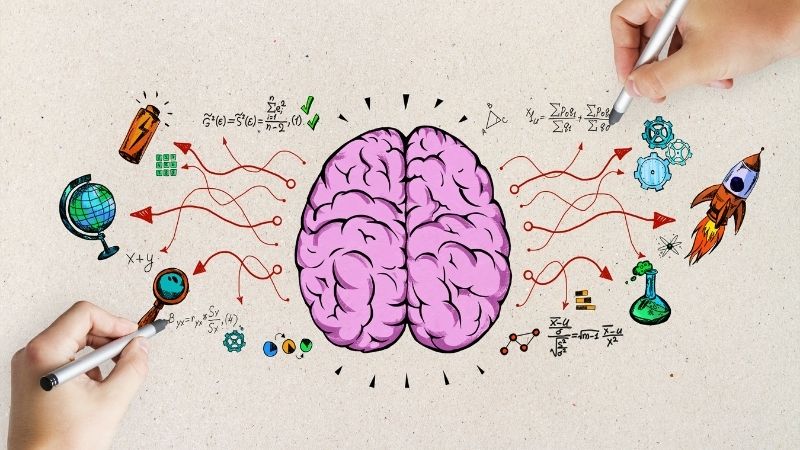
As an avid learner, I am always seeking out new ways to enhance my education. That's why I was intrigued when I stumbled upon the concept of gamified learning.
It's like a secret weapon that combines the power of educational games, learning through play, student engagement, reward systems, and educational quizzes all in one.
This article explores the impact these innovative methods have on students' learning outcomes. So buckle up and get ready to embark on a journey into the exciting world of gamified learning!
Key Takeaways
- Gamified learning enhances student engagement and motivation, leading to improved learning outcomes.
- Learning through play encourages critical thinking and problem-solving skills.
- Rewards tap into students' natural desire for recognition and achievement, making learning enjoyable.
- Quizzes serve as a powerful tool for retrieval practice, strengthening neural connections and improving long-term retention.
The Rise of Gamified Learning
You'll be amazed at how educational games have revolutionized the way students learn and engage in the classroom.
The rise of gamified learning has had a profound impact on education, transforming traditional teaching methods into interactive and immersive experiences.
Research has shown that educational games enhance student engagement and motivation, leading to improved learning outcomes.
When students are actively involved in gameplay, they are more likely to retain information and develop critical thinking skills.

Additionally, gamification introduces a reward system that encourages students to strive for success and achieve their goals.
By incorporating educational quizzes within these games, students can assess their knowledge in a fun and engaging manner.
This innovative approach to learning not only fosters creativity but also empowers students with the freedom to explore new concepts at their own pace while enjoying the process.
Enhancing Learning Through Educational Games
Get ready to see how educational games can enhance your learning experience and help you achieve better outcomes in the classroom. Research has shown that incorporating educational games into the curriculum can significantly improve student engagement and motivation, leading to increased knowledge retention and academic performance.
These games provide a fun and interactive way for students to learn, allowing them to actively participate in their own education. By immersing themselves in game-based learning activities, students are able to apply critical thinking skills, problem-solving strategies, and creativity in a meaningful context.
Moreover, educational games often include reward systems that offer immediate feedback and incentives for progress, further motivating students to strive for success. With these benefits in mind, it is clear that integrating educational games into the classroom can revolutionize traditional teaching methods and unlock the full potential of every student.
Transition: Now that we have explored the impact of educational games on learning outcomes, let's delve deeper into exploring the power of learning through play.

Exploring the Power of Learning Through Play
Immerse yourself in the world of educational games and discover the transformative power they hold for enhancing your educational experience.
Educational games have revolutionized the way we learn, making it more engaging and interactive. Here are five reasons why learning through play is so powerful:
Active Learning: Educational games allow you to actively participate in the learning process, encouraging critical thinking and problem-solving skills.
Personalized Learning: Games can be tailored to individual needs and learning styles, ensuring a personalized educational experience.
Motivation and Engagement: The element of fun in educational games keeps learners motivated and engaged, leading to better retention of information.
Immediate Feedback: Games provide instant feedback on performance, allowing learners to identify areas for improvement and make adjustments in real-time.
Social Interaction: Many educational games promote collaboration and competition among peers, fostering social interaction and teamwork.

Fostering Student Engagement in the Classroom
As an educator, I've learned that student engagement is crucial for effective learning. When students are engaged in the classroom, they're more likely to retain information, participate actively, and take ownership of their education.
Research has shown that high levels of student engagement can lead to improved academic outcomes, increased motivation, and a positive classroom environment.
To foster student engagement, teachers can implement strategies such as interactive lessons, collaborative activities, and incorporating technology into the curriculum.
Benefits of Student Engagement
Engaging students in educational games can significantly enhance their learning outcomes. Research has shown that when students are actively involved in the learning process through gamified activities, they are more motivated and focused, leading to better retention of knowledge and improved academic performance.
Here are five benefits of student engagement through educational games:
Increased motivation: Games tap into students' natural desire for competition and achievement, making learning more enjoyable and exciting.
Active participation: Educational games require active involvement from students, allowing them to apply concepts and practice skills in a hands-on manner.

Improved problem-solving skills: Games often present challenges that require critical thinking and problem-solving, helping students develop these essential cognitive abilities.
Personalized learning experience: Many educational games adapt to individual student needs, providing targeted feedback and personalized content based on each student's progress.
Enhanced collaboration: Some games promote teamwork and collaboration among students, fostering social interaction and communication skills.
Strategies for Increasing Engagement
To increase engagement with educational games, try incorporating interactive elements and real-world connections into the gameplay.
Research has shown that incorporating interactive elements, such as puzzles or quizzes, can enhance learning outcomes. This is because it promotes active participation and critical thinking. When students actively engage with the content, they are more likely to retain information and apply it in real-world scenarios.
In addition to interactive elements, connecting the gameplay to real-world situations or problems can make the learning experience more meaningful and relevant for students. This approach not only enhances their understanding of the subject matter but also cultivates problem-solving skills that can be applied beyond the game context.
Therefore, by including interactive elements and real-world connections in educational games, we can create a more engaging and effective learning experience for students.

The Impact of Reward Systems on Student Learning
When it comes to motivating students, rewards have long been seen as a powerful tool. The use of rewards can tap into both intrinsic and extrinsic motivation, encouraging students to engage in desired behaviors or achieve specific goals.
However, there is ongoing debate about the long-term effects of using rewards on student learning and motivation. Research suggests that while rewards can be effective in the short term, they may undermine intrinsic motivation and hinder long-term learning outcomes.
Motivating With Rewards
Using rewards in educational games can significantly increase my motivation to learn and achieve better learning outcomes. Research has shown that incorporating reward systems into educational games can have a positive impact on student engagement and performance. Here are five key reasons why rewards can be effective in motivating students:
Intrinsic motivation: Rewards tap into our natural desire for recognition and achievement, making learning more enjoyable.
Goal-oriented focus: Rewards provide clear goals for students to strive towards, giving them a sense of purpose and direction.
Immediate feedback: Rewards offer immediate feedback on progress, allowing students to track their improvement and adjust their learning strategies accordingly.
Sense of accomplishment: Receiving rewards for completing tasks or reaching milestones boosts students' self-esteem and confidence in their abilities.

Sustained interest: The anticipation of earning rewards keeps students engaged over time, promoting long-term retention of knowledge.
Intrinsic Vs Extrinsic Motivation
You can increase your motivation to learn by understanding the difference between intrinsic and extrinsic motivation.
Intrinsic motivation refers to the internal desire or curiosity to engage in an activity for its own sake, without any external rewards or pressures. It is driven by personal interest, enjoyment, and a sense of accomplishment.
On the other hand, extrinsic motivation comes from outside sources such as rewards, grades, or praise. While extrinsic motivators can be effective in encouraging short-term engagement and compliance, research suggests that relying solely on external rewards may undermine long-term intrinsic motivation.
Understanding this difference is crucial because it allows you to tap into your natural curiosity and passion for learning. Instead of seeking external validation or rewards, you can focus on finding joy in the process of learning itself. This shift in mindset promotes autonomy and fosters a sense of ownership over your education.
Research has shown that individuals who are intrinsically motivated tend to have higher levels of self-esteem and greater persistence when facing challenges. They also exhibit deeper levels of learning and are more likely to retain information compared to those who rely solely on extrinsic motivators.
In order to cultivate intrinsic motivation, it can be helpful to explore topics that genuinely interest you and align with your values. Additionally, setting meaningful goals that reflect personal growth rather than simply achieving external benchmarks can enhance intrinsic motivation.

While extrinsic motivators like grades or rewards may still play a role in education systems, understanding how they interact with our intrinsic motivations empowers us to navigate them more consciously. By prioritizing our internal drive for knowledge and growth, we can create a sense of freedom within our pursuit of learning.
Long-Term Effects of Rewards
Understanding the long-term effects of rewards is important in order to foster intrinsic motivation and promote deeper levels of learning. While rewards can provide short-term motivation, their impact on long-term outcomes has been a subject of debate.
Research suggests that excessive use of extrinsic rewards may undermine intrinsic motivation, leading to a decrease in interest and engagement over time. However, when used strategically, rewards can be effective in enhancing learning outcomes. Here are some key findings:
- Rewards should be contingent on effort or improvement rather than simply completing a task.
- Tangible rewards should be paired with verbal praise to reinforce the value of the task itself.
- Intrinsic rewards such as enjoyment and personal accomplishment should also be emphasized alongside external rewards.
- The frequency and timing of rewards play a crucial role in maintaining motivation.
- Individual differences must be considered when designing reward systems, as what may motivate one student may not work for another.
Maximizing Learning Outcomes With Educational Quizzes
To get the most out of educational quizzes, it's important to incorporate them strategically into your learning routine. Research has shown that regular use of quizzes can significantly enhance learning outcomes. Quizzes serve as a powerful tool for retrieval practice, allowing students to actively recall information and reinforce their understanding. By engaging in active recall, we strengthen neural connections and improve long-term retention.
Furthermore, educational quizzes promote metacognitive awareness by providing immediate feedback on performance. This feedback allows students to identify areas of weakness and adjust their study strategies accordingly. Additionally, quizzes can be designed with adaptive features that cater to individual learning needs, further enhancing the effectiveness of the learning experience.
Incorporating educational quizzes into your learning routine not only enhances knowledge acquisition but also fosters a sense of autonomy and freedom in the learning process. As you take control of your own learning through self-assessment and reflection, you become an empowered learner capable of achieving greater academic success.
Gamified Learning: A New Frontier in Education
Gamified learning has emerged as an exciting and innovative approach to education. As a student, I have personally experienced the transformative power of gamification in my own learning journey. Here are five key reasons why gamified learning is making waves in the education sector:

Increased student engagement: Gamification taps into our natural desire for competition and rewards, making learning more enjoyable and motivating.
Active learning through play: Educational games provide hands-on experiences that encourage critical thinking, problem-solving, and creativity.
Personalized learning experience: Gamified platforms often adapt to individual needs and progress, offering customized content and challenges.
Immediate feedback and assessment: Gamification allows for real-time feedback, enabling students to track their performance and make improvements instantly.
Long-term retention of knowledge: The interactive nature of educational games enhances memory retention by actively involving students in the learning process.
Through these game-based approaches, students can unleash their potential while enjoying freedom within the structured educational environment.
Frequently Asked Questions
What Are Some Examples of Educational Games That Have Been Successfully Used to Enhance Learning Outcomes?
Some examples of educational games that have successfully enhanced learning outcomes include MinecraftEdu, Kahoot!, and Prodigy. These games engage students through interactive gameplay, reward systems, and educational quizzes, fostering a more enjoyable and effective learning experience.

How Can Teachers Effectively Incorporate Learning Through Play Into Their Classroom Curriculum?
To effectively incorporate learning through play into my classroom curriculum, I can use educational games, engage students in hands-on activities, implement reward systems for motivation, and incorporate quizzes to assess their learning outcomes.
What Strategies Can Be Employed to Foster Student Engagement in the Classroom?
To foster student engagement in the classroom, I use a variety of strategies. These include incorporating educational games, implementing reward systems, and using interactive quizzes. By making learning fun and interactive, students are more motivated to participate and actively engage in the material.
Are There Any Potential Drawbacks or Challenges Associated With Implementing Reward Systems in Education?
Implementing reward systems in education can have potential drawbacks and challenges. While they can increase motivation and engagement, they may also create a focus on extrinsic rewards rather than intrinsic learning. Additionally, they can lead to unfair comparisons and demotivation for students who don't receive rewards.
How Can Educational Quizzes Be Used to Maximize Learning Outcomes and Assess Student Understanding?
Educational quizzes can enhance learning outcomes by providing a formative assessment tool. They engage students through interactive, game-like features and allow for immediate feedback, promoting active learning and knowledge retention.
 Careers in EducationElementary EducationHigh School EducationEducational TechnologyTeaching StrategiesSpecial EducationPrivacy PolicyTerms And Conditions
Careers in EducationElementary EducationHigh School EducationEducational TechnologyTeaching StrategiesSpecial EducationPrivacy PolicyTerms And Conditions
